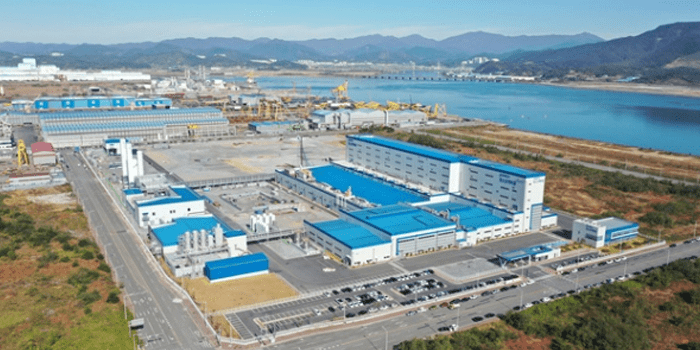Posco to expand Tongxiang site with Huayou Cobalt
According to media reports, in an expansion of its Tongxiang site, South Korean company Posco is planning to build two new plants for electric vehicle battery materials in China. One plant is to be for cathode materials and another for precursors. Both are scheduled to go into operation in 2023.
The new production facilities are each expected to have an annual capacity of 30,000 tonnes. The new cathode plant and new precursor plant represent an expansion of an existing battery materials plant in the city of Tongxiang in eastern China. The plant was built in August 2019 and is run by two separate joint ventures between Posco and Huayou Cobalt – the world’s largest cobalt producer. Korean media put the investment in the two new plants at 281 billion won, the equivalent of about 205 million euros.
Of this total investment, 176.9 billion won is to be spent on the cathode plant, run by one of the two joint ventures formed by Posco and Huayou called Zhejiang Posco-Huayou New Energy. In exchange, Posco Chemical will obtain shares in the cathode joint venture. This will raise the total stake held by Posco Group to 60 per cent.
The remaining amount of Posco investment will go into the precursor plant to be built by Zhejiang Huayou-Posco New Energy, the other joint venture with Huayou Cobalt. This will increase Posco Group’s combined stake in the joint venture to 40 per cent.
The groundbreaking ceremony for the expansion of the Tongxiang plant is scheduled for the second half of this year. Currently, 5,000 tonnes of precursors or cathodes are produced annually on site. After the commissioning of the new facilities, this figure is expected to rise to 35,000 tonnes. As future customers, Posco has named a number of Chinese battery manufacturers as well as Korean manufacturers operating in China.
Only a few weeks ago, Posco Chemical also announced the construction of another factory for cathode materials in its home country. This is to be built in the coastal city of Pohang and will have an annual capacity of 60,000 tonnes. Upon completion, which is planned for 2025, the factory will be Posco Chemical’s third cathode materials plant in South Korea. The subsidiary of the Posco steel group puts the investment in the new plant at 600 billion won, the equivalent of around 445 million euros.
The two existing plants in South Korea are in Gumi and Gwangyang. The company announced the building of a lithium hydroxide plant at the Gwangyang site in April this year. Posco had already been operating a test facility in Gwangyang for two years to improve the technology, while a factory for the production of cathode materials in which the lithium hydroxide is further processed was already located there. Currently, the capacity at Gwangyang is 30,000 tonnes per year.
Posco Chemical aims to produce 160,000 tonnes of battery materials annually in Korea and 110,000 tonnes abroad by 2025. In addition to China, the South Korean company has its sights set on Europe and the USA. The US-based LG-GM joint venture Ultium Cells has already confirmed that it will rely on preliminary products from Posco. Posco is also building a battery plant in Indonesia, which has the largest annual production and reserves of nickel in the world
Steel company Posco has been investing in battery materials to diversify its business since 2018. At that time, EV components were identified as a future growth area and the first plants were commissioned – in addition to cathode material, Posco also produces anode materials. The group has secured access to various raw materials such as lithium, nickel and graphite. In Chile, a country with significant lithium resources, a consortium led by Posco and Samsung SDI won a bid to build a cathode materials plant.
The Posco Group clearly has its sights on a very productive future, but also has the bigger picture in mind. The company is also expanding its capacity for fuel cell components, and, in addition to its raw materials processing plants, is planning a recycling business for lithium-ion batteries with existing partner Huayou Cobalt.





0 Comments